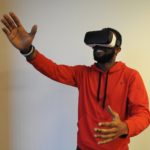
M. David Enoch writes his debut elf blog on a recent article in the BJPsych Bulletin about the trailblazing use of online interventions to enable autonomous psychological care.
His blog also suggests that during the current pandemic we may learn something important from Viktor Frankl’s Logotherapy, which was born out of the horrors of the World War II concentration camps.
[read the full story...]







